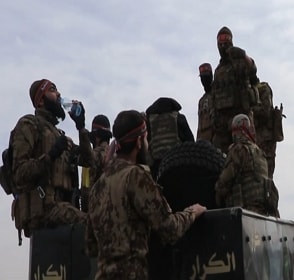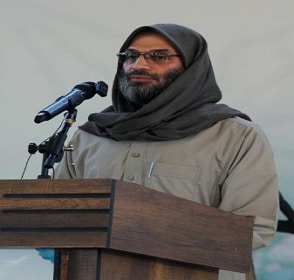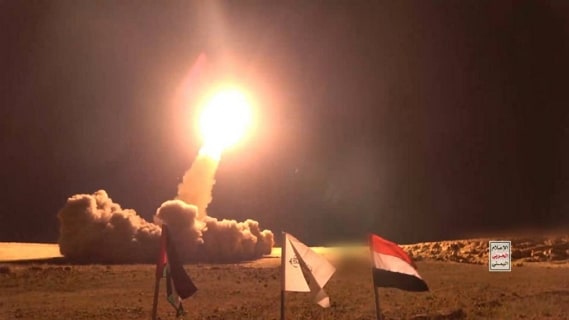The following report is now a complimentary offering from MEMRI's Jihad and Terrorism Threat Monitor (JTTM). For JTTM subscription information, click here.
On January 9, 2024, Jordan-based pro-Al-Qaeda ideologue ’Isam Al-Barqawi aka Abu Muhammad Al-Maqdisi, published an article about the Israel-Hamas war in the Gaza Strip and whether it is appropriate to join the fighting. In his article, Al-Maqdisi criticizes Hamas for what he describes as espousing the path of the Muslim Brotherhood or "Islamocracy," and not fighting for the implementation of shari'a law in Gaza. He refrains from praising the Hamas movement and its members and even openly criticizes Al-Qaeda which, he claims, praises Hamas. And yet, he believes that jihadis should join the fighting against Israel and not remain on the sidelines. He wrote that this is his opinion based on "nobility, enthusiasm and fraternity… and a preference for unity rather than division during a time of trouble and disaster," as well as due to the belief that this war is likely to benefit the Muslims in that "it will awaken the Islamic nation and ignite within it the spark of jihad."

The following is a summary of the main points in Al-Maqdisi's article:
Published on the file-sharing website justpaste.it, under the heading, "Perhaps! If Only! Through Allah, His Grace and His Power; Not Through the Desires of Those Who Do Not Know [the Truth]" – in his article Al-Maqdisi claimed that there are wars "that you are dragged into when you did not choose them, because you are in the same boat, with no advance planning, and sometimes even when you don't believe in their rationale. However, nobility, enthusiasm and fraternity prevent you from choosing a position as an onlooker… The blessing of standing with your brother, due to preferring unity to division in a time of trouble and disaster, sometimes leads to good things. This may occur due to the power of Allah and His grace, as is written in the Quranic verse: "You may hate something which Allah turns into a great blessing." (Quran 4:19)
Referring obliquely to the Hamas Al-Aqsa Flood attack on Israel on October 7, 2023, Al-Maqdisi noted that the one who started the war (Hamas) violated the hudna (temporary ceasefire) that was signed under the auspices of "Arab intelligence" (the reference is to Egyptian intelligence), and wrote that its violation (by any jihadi organization) would have led to a series of punitive measures (on the part of Hamas), including: confiscation of weapons, incarceration of operatives and the disbanding of the organization. Moreover, he wrote, "its true goals and motives are unknown to you, since you don't trust the one who started [the war], for he espouses the path of the Muslim Brotherhood, Islamocracy, rules according to manmade laws, and does not fight to impose shari'a law… You are in no way party to fateful decisions (regarding the war) and now you are likely to join it with all your capabilities and your full weight and even to encourage your brothers [to behave like you] and in the end to be surprised by the fact that the inciters [of the war] will shut it down and end it, should some donor or any leader so desire. And this may be done without consulting you or even informing you."
What's more, the article continued, "The Rafidites (a pejorative term for Shi'ites), who cursed the Companions of the Prophet and his pure wives, and the murderers of your brothers in Syria, in Iraq, in Yemen and in other places – are closer than you are to those who wage [this war] and their influence on the latter is greater and more significant."
Therefore, wrote Al-Maqdisi, voicing words of praise and flattering those who are waging the war (Hamas), without expressing reservations about the way they are operating, is "a mixture of stupidity, naivete and villainy." In this context, he openly criticized Al-Qaeda, which he said praises Hamas in its statements and even uses propaganda materials from the Hamas military wing, the Izz Ad-Din Al-Qassam Brigades, to incite against "dictatorial" regimes that Hamas itself is loyal to, depends on, and even views their martyrs as martyrs of Jerusalem (a veiled reference to Hizbullah and Iran).
Al-Maqdisi added: "As long as you did not prepare for this day [i.e. for war] people, capabilities, and a bank of painful targets – do not ride a wave that is not yours and do not praise and dance to the music of songs that do not suit you. If you participate because you have no choice, do so as one who has become entangled in a battle over which he has no control. Although at the same time he finds that it is beneficial to Muslims and foresees that it will awaken the Islamic nation and ignite within it the spark of jihad. This will occur with the grace of Allah and His power, and not due to the desires of those who do not know."
It is noteworthy that the ideas raised in this article reflect the duality of Al-Maqdisi's attitude toward Hamas, against the background of its war with Israel in the Gaza Strip. For instance, in the past he has lauded the accomplishments of the movement in the framework of the Al-Aqsa Flood attack, but stressed that they are "temporary victories" which cannot obscure "the deviations of Hamas and its government," chief among them, its failure to enforce shari’a law in the Gaza Strip; its collaboration with "criminals" and "murderers" such as the heads of the Iranian and Syrian regimes; and the persecution of the Salafi-jihadi groups in the Gaza Strip.
The full text of this post is available to subscribers.
Please login or register to request subscription information from MEMRI






